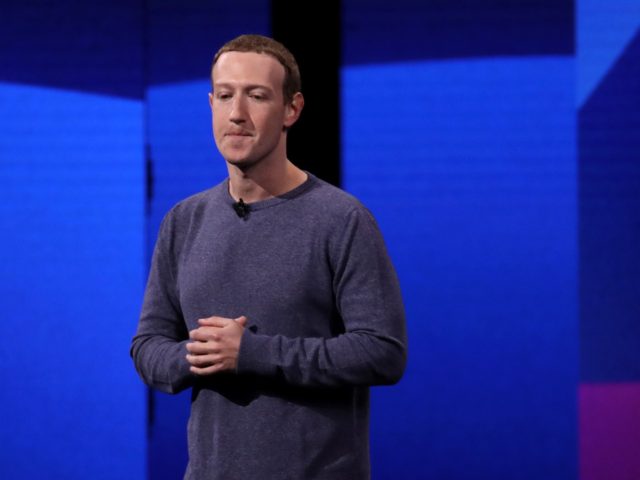A recent report from the New York Times claims that the relationship between Facebook CEO Mark Zuckerberg and COO Sheryl Sandberg has become tense over the past few years. As the relationship has deteriorated, Zuckerberg has reportedly taken power away from Sandberg, who he once trusted with greater authority.
The New York Times reports in an article titled “Mark Zuckerberg and Sheryl Sandberg’s Partnership Did Not Survive Trump,” that the relationship between Facebook CEO Mark Zuckerberg and company COO Sheryl Sandberg took a major downturn during the Trump presidency as the company was forced to deal with multiple scandals and issues.
According to the NYT, many of the issues between the two began with Sandberg’s public handling of the scandals that Facebook faced; such as the January 6 Capitol Hill riots that were primarily organized on Facebook. Sandberg denied that Facebook was a key organizing tool for the events and was later proven wrong.
Discussing the weekly meetings that Zuckerberg and Sandberg used to have, the NYT writes:
The pair continued their twice-weekly meetings, but Mr. Zuckerberg took over more of the areas once under her purview. He made the final call on issues surrounding Mr. Trump’s spread of hate speech and dangerous misinformation, decisions Ms. Sandberg often lobbied against or told allies she felt uncomfortable with. Mr. Zuckerberg oversaw efforts in Washington to fend off regulations and had forged a friendly relationship with Mr. Trump. Ms. Sandberg surrounded herself with a “kitchen cabinet” of outside political advisers and a team of public relations officials who were often at odds with others in the company.
During Zuckerberg’s address at Georgetown University in Washington in October of 2019, the CEO described Facebook as part of a new force that he called “the fifth estate.” He claimed that Facebook provided an unfiltered and unedited voice to its 2.7 billion users and warned against shutting down dissenting views. He claimed that it was not the role of a business to make hugely consequential governance decisions.
After the speech, many criticized Zuckerberg stating that political lies had the potential to foment violence and called for further censorship across the platform. Many at Facebook close to Sandberg were reportedly upset about the speech. The NYT writes:
An aide to Ms. Sandberg fired off a series of angry emails about the Georgetown speech to her. She wrote back that he should forward the emails to Nick Clegg, a former British deputy prime minister who had become Facebook’s vice president of global affairs and communications, and others who might influence Mr. Zuckerberg’s thinking. Her inaction infuriated colleagues and some of her lieutenants — his decisions, after all, were in direct contradiction to the core values she promoted in public. There was little she could do to change Mr. Zuckerberg’s mind, Ms. Sandberg confided to those close to her.
A few days later, Sandberg sat down with Katie Couric at the Vanity Fair’s New Establishment Summit in Los Angeles for an interview. During the interview, Couric grilled Sandberg about bullying on Instagram and Facebook and the company’s attitude towards censorship. The NYT writes:
Toward the end of the conversation, Ms. Couric posed the question that few were bold enough to ask Ms. Sandberg directly: “Since you are so associated with Facebook, how worried are you about your personal legacy as a result of your association with this company?” Ms. Sandberg didn’t skip a beat as she reverted to the message she had delivered from her first days at Facebook.
“I really believe in what I said about people having voice. There are a lot of problems to fix. They are real, and I have a real responsibility to do it. I feel honored to do it,” she said, with a steady voice and calm smile. She later told aides that inside, she was burning with humiliation.
Read more at the New York Times here.
Lucas Nolan is a reporter for Breitbart News covering issues of free speech and online censorship. Follow him on Twitter @LucasNolan or contact via secure email at the address lucasnolan@protonmail.com

COMMENTS
Please let us know if you're having issues with commenting.